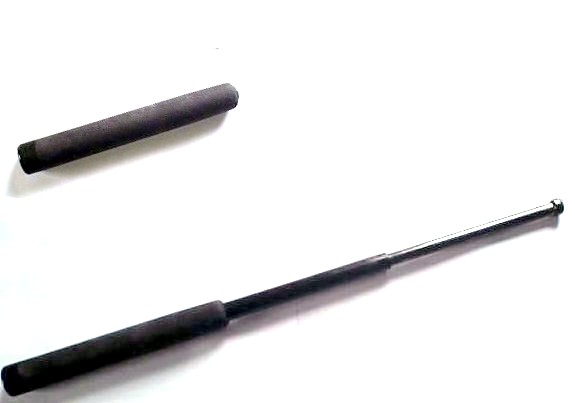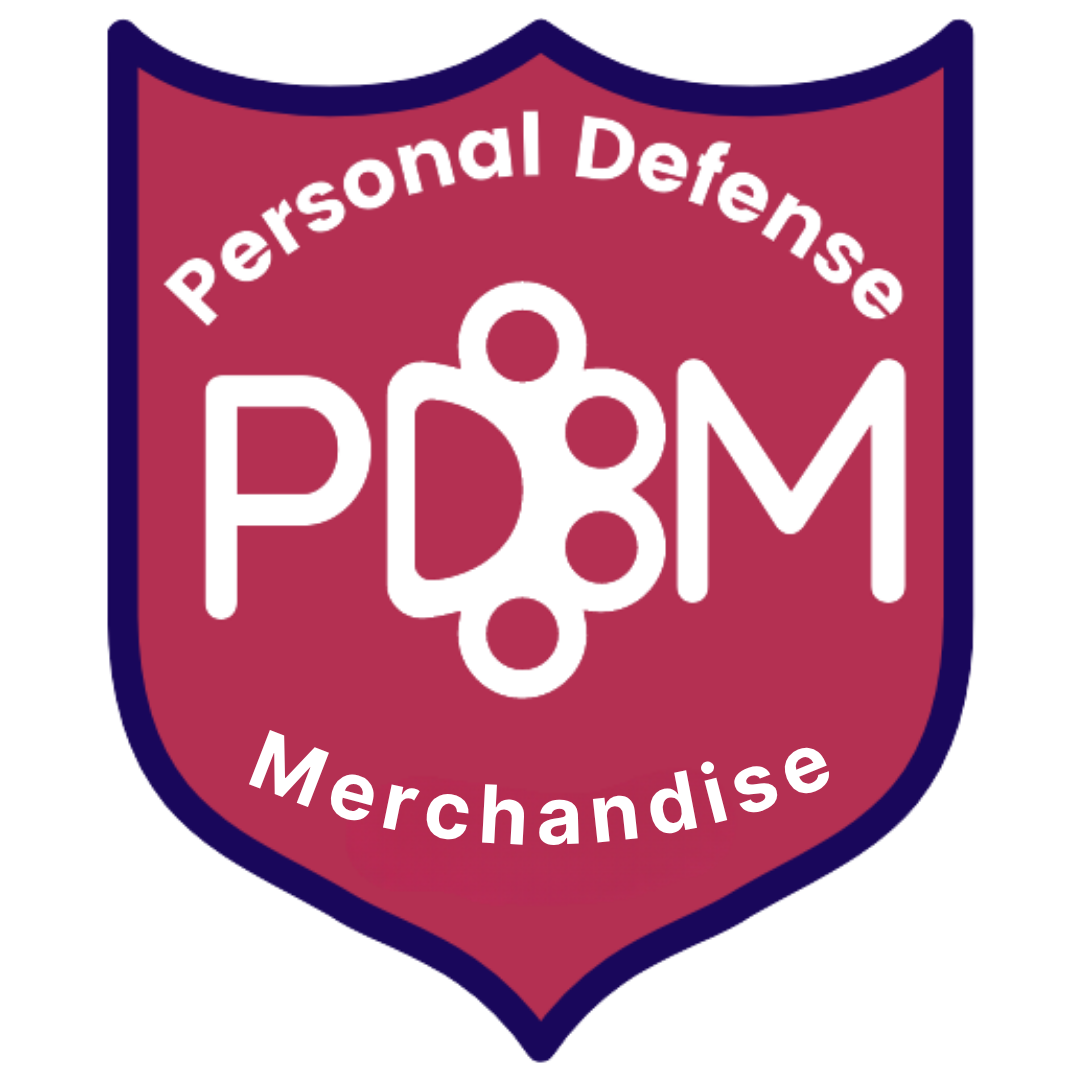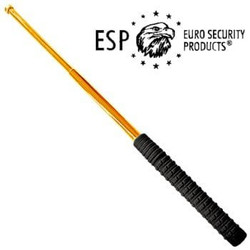Are Expandable or Collapsible Batons Legal in Oregon?
Expandable or collapsible batons provide a non-lethal alternative to firearms. They can be useful when hiking in areas with dangerous wildlife. They can also be used to separate fighting dogs or prevent dog attacks. And– most importantly– they can be used against violent attackers in self-defense situations.

What are Expandable or Collapsible Batons?
Collapsible batons are a striking weapon used primarily by the police, security, and military personnel as striking weapons. However, they can also be used as an impact tool to block, aid arm locks, break windows, break safety glass surrounding fire extinguisher enclosures, or lever open doors to gain entry to vehicles or structures. Collapsible batons can also be referred to as expandable batons, telescopic batons, retractable batons, steel batons, tactical batons, metal batons, and security batons.
To open, the user flicks their wrist to expand the baton to its full size. To close, the user strikes the baton straight down on a hard surface.
They can be purchased for about $30 to $130 at local stores or online at Midway, Galls, or Cabela’s.
Are Collapsible Batons Legal in Oregon?
In short, yes. No black-letter law in Oregon Revised Statutes states batons or collapsible batons are unlawful to purchase, possess, or openly carry. However, carrying them concealed is likely illegal (see below). Also, carrying them into places where weapons are prohibited is illegal. In addition, while it might be legal to possess or openly carry a collapsible baton, using one unlawfully violates ORS 166.220, “Unlawful Use of Weapon,” or illegally threatening someone with the use of a baton may be a violation of ORS 163.190 “Menacing.”
Can You Carry a Concealed Collapsible Baton in Oregon?
There is no specific statute or rule for carrying concealed batons. However, ORS 166.240 has been interpreted as prohibiting the concealed carry of items designed primarily as weapons to inflict injury. ORS 166.240 “Carrying of Concealed Weapons” reads as follows:
(1) Except as provided in subsection (2) of this section, any person who carries concealed upon the person any knife having a blade that projects or swings into position by force of a spring or by centrifugal force, any dirk, dagger, ice pick, slingshot, metal knuckles, or any similar instrument by the use of which injury could be inflicted upon the person or property of any other person, commits a Class B misdemeanor.
(2) Nothing in subsection (1) of this section applies to any peace officer defined in ORS 133.005, whose duty is to serve, process, or make arrests. Justice courts have concurrent jurisdiction to try any person charged with violating any of this section’s provisions of subsection (1).
Can I carry batons or collapsible batons concealed on my person?
Not likely. Because inState v. Tucker, 28 Or.App. 29 (1977), theOregon Court of Appealswas called to decide whether carrying concealed “nunchaku sticks” (commonly called “nunchucks”) was prohibited by ORS 166.240. The Court held, in part:
The phrase here in controversy, ‘any instrument by the use of which injury could be inflicted upon the person or property of any other person,’ is preceded by a specific list of weapons, i.e., firearms, knives, metal knuckles, and slung shot. We construe this phrase to embrace items similar to the enumerated objects and are designed and intended primarily as weapons to inflict bodily injury or death. Accordingly, we hold this statute applies to items not enumerated that are designed and intended primarily to inflict injury on the person or property of another. Defendant argues in support of the demurrer that the general phraseology of the statute could be used to prohibit the carrying of rattail combs, letter openers, screwdrivers, ballpoint pens, and “like” items that could be used to inflict injury. This argument well illustrates our construction of the statute. We recognize that an ordinary instrument may become a deadly weapon by its use; however, as we construe the statute, these items would not be included since they are not designed primarily as weapons to inflict injury. Given the construction of the statute we have applied, nunchaku sticks fit within the prohibition of the general terms. They are primarily designed and intended for use in combat with the purpose of causing injury or death. Indeed, the legislature has recognized their character by including them specifically as a dangerous or deadly weapon regulated by ORS 166.220. Defendant urges nunchaku sticks have a practical and destructive purpose in the recreational area of ‘martial arts.’ By their very nature ‘martial arts, using implements in the demonstration involves weaponry, and a recreational ‘martial arts’ use of nunchaku sticks merely demonstrates their character as weapons. An exception under the statute for recreational use is a legislative determination.
“But what about concealed carry permits? Can’t I get a permit to carry a concealed collapsible baton?”
No, not unless you are a peace officer. For civilians, ORS 166.291 does allow the issuance of a concealed handgun license in Oregon, but there is no such license available for knives, brass knuckles, batons, or other weapons.
“What are the penalties for carrying a concealed collapsible baton?”
The penalties for violating ORS 166.240 can include– but are not limited to:
- A maximum of one year in jail,
- Five years of probation
- Community work service
- A maximum of a $6,250.00 fine



